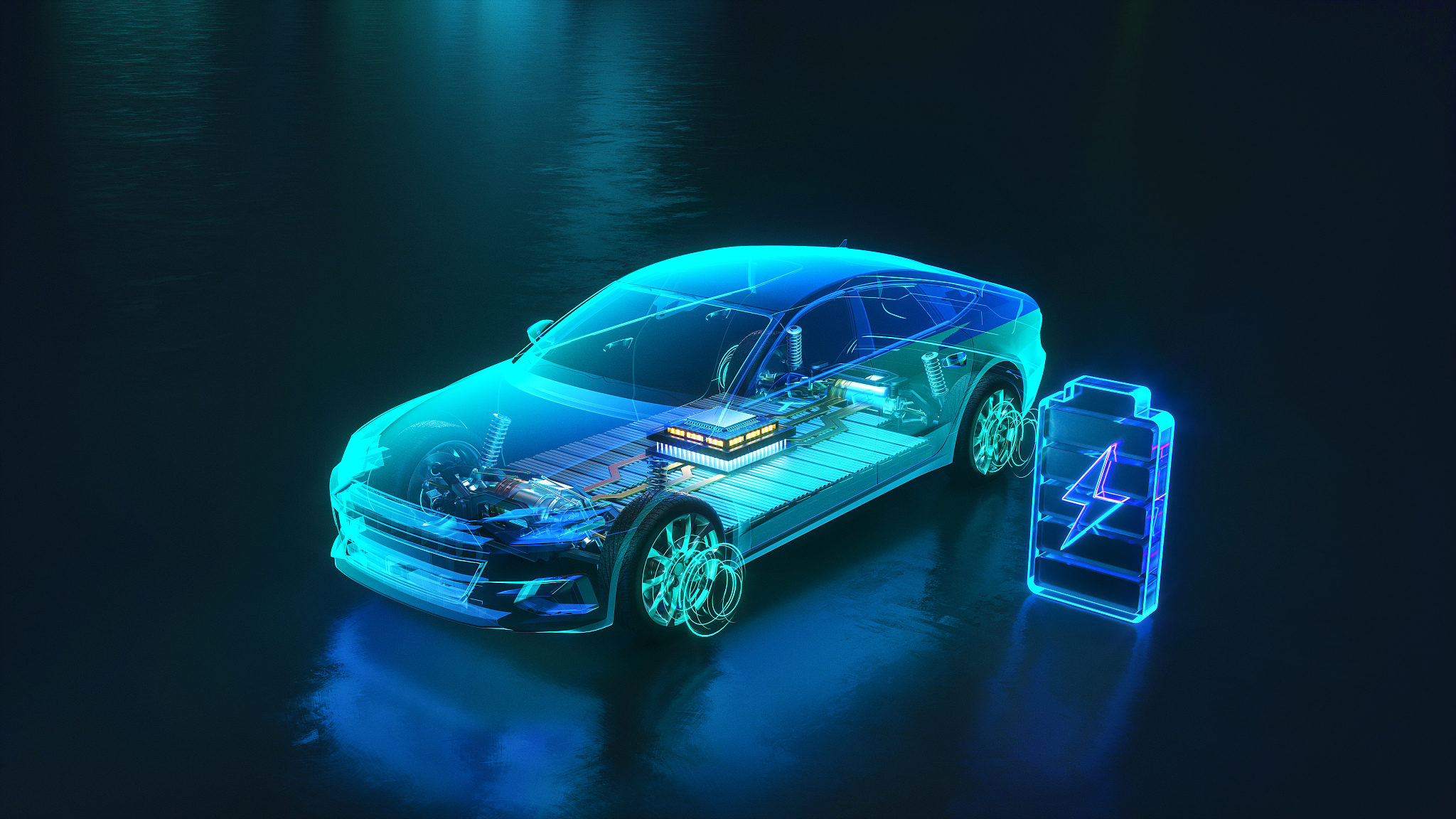Electric Vehicle: An Irreversible Trend

PHOTO: VCG
By Yu Haoyuan
China's 2024 government work report highlights the significant increase in exports of the "new trio" — referring to electric vehicles (EVs), lithium-ion batteries, and photovoltaic products — which collectively saw a 30 percent rise. Among these, the exports of China's new energy vehicle (NEV) sector soared by 77.6 percent in 2023, reaching 1.2 million units, ranking first in the world for the ninth consecutive year.
Development of EVs — past and present
China's remarkable EV achievement stems from its planning over the past two decades.
In 2007, in alignment with global efforts to combat climate change and achieve carbon neutrality, China implemented the New Energy Vehicle Production Access Management Rules.
In 2018, China removed foreign ownership restrictions on special-purpose vehicles and NEVs. Foreign EV producers then could directly build factories in China without establishing joint ventures with Chinese companies. This move saw U.S. carmaker Tesla launching its mega factory project in Shanghai, while Volkswagen Group China set ambitious goals to produce more than half of the group's global objective of 22 million EVs in China by 2028.
Simultaneously, China witnessed the emergence of domestic NEV startups, with Nio becoming the first Chinese EV company to list shares on the New York Stock Exchange. Today, Chinese-made cars not only dominate the domestic EV market, but are also exported in growing numbers, with NEV manufacturer BYD ranking among the world's top 10 car companies by sales. Other notable players like Li Auto, Xpeng, and LYNK are also industry leaders.
Technical advantages in EV performance
EV core technologies, including power batteries, electric motors, electronic control systems, and semiconductor chips, have seen significant advancements driven by domestic demand.
The country's EV companies have rapidly upgraded their battery technologies, with major suppliers like CATL introducing innovative solutions that include sodium-ion batteries and superfast charging LFP batteries. BYD's blade battery and its subsequent enhancements further exemplify this progress.
In the global power battery market, Chinese brands have secured dominant positions, with CATL and BYD leading the rankings in 2023 according to the SNE research.
The two companies together posted 371.1 GWh, over 50 percent share of the world EV battery market.
Chinese companies are also competing in electric motor technologies. BYD and Guangzhou Automobile Group (GAC) have claimed some of their car products would boast acceleration from 0 to 62 mph in less than 3 seconds. Particularly noteworthy is GAC's Aion Hyper SSR, which can accelerate from from 0 to 60 mph in a blistering 1.9 seconds.
Moreover, China's automotive chip technology is catching up with established players worldwide.
The adoption of intelligent driver-assistive technology is also gaining momentum, with Chinese systems like Huawei ADS 2.0 and Xpeng XNGP showcasing urban driving capabilities without relying on high-precision maps.
Technologies such as the emergence of 800V charging and CIB (Cell Integrated Body) technology represent China's significant innovations. The rapid iteration of products and technologies is gradually shifting China's NEVs from mere recipients of standard technology, to pioneering creators in the field.
The future main battleground of EVs
EVs are the future of passenger cars, a sentiment agreed on by industry leaders from companies like GAC, BYD and Mercedes at the latest China EV100 forum, who recognize that the trend towards electrification is irreversible.
China has emerged as the primary technology battleground for EVs. According to an article published on the Harvard Business Review, one significant factor driving this phenomenon is the extensive collaboration among domestic automotive companies and those from abroad to reinforce their core technology efforts.
The article underscores Geely as a example, emphasizing its strategic partnerships, including with Baidu, and acquisitions such as Drivetrain Systems International, an Australian automatic transmission manufacturer, and renowned automakers like Volvo and Lotus. These maneuvers have enabled the company to swiftly and effectively orchestrate complementary assets around its core focus, which now encompasses everything from low-orbit satellites to smart hardware for collecting and monitoring data that could potentially enhance EV battery performance.
This collaboration has led to strategic partnerships, acquisitions, and investments aimed at reinforcing core technology efforts and expanding global market presence. Last July, the Volkswagen Group announced a \$700 million investment for a 4.99 percent stake in Xpeng. The two companies have embarked on a long-term strategic partnership to produce new EVs in China. Audi also signed a Memorandum of Understanding with SAIC to jointly develop new electric models.
Furthermore, Chinese companies are accelerating their global expansion, establishing factories overseas and gaining recognition for their products. Brands such as AVATR, HAVAL, BYD, and ZEEKR have achieved success in various countries.
German auto expert Kupferschmidt noted that China has achieved mastery over much of the value chain, spanning from raw materials to battery technology.
Looking ahead, Ouyang Minggao, academician at the Chinese Academy of Sciences, advocated for a continued focus on electrification, intelligence, low carbonization and globalization to drive industry advancements.






